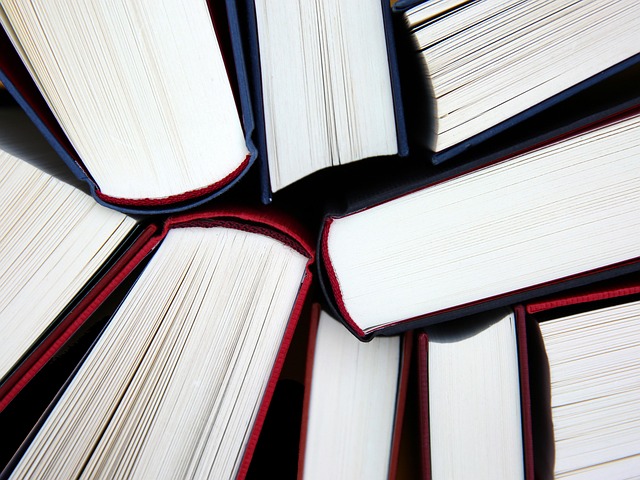In the dynamic academic environment of the UK, Translation services for UK Research Papers are essential for upholding integrity and excellence. These specialized services employ expert translators who understand both the linguistic nuances of British English and academic terminology, ensuring accurate cross-language communication. Best practices include leveraging professional companies with native speakers and advanced technologies like machine translation (MT) powered by AI, preserving context, and providing clear resources to facilitate precise translations that maintain the original intent and scientific integrity of UK research papers.
In the global academic landscape, ensuring accurate translations of UK research papers is paramount for knowledge exchange and collaboration. This article delves into the critical aspect of translation accuracy, exploring challenges unique to UK publications, from cultural nuances to linguistic complexities. We discuss best practices for evaluating translation services and examine how technology is revolutionizing academic document translations, particularly for UK research papers, fostering a more inclusive scholarly environment.
- Understanding the Importance of Accurate Translations in Research Papers
- Challenges in Translating UK Research Papers: Cultural and Linguistic Barriers
- Ensuring Quality: Best Practices for Evaluating Translation Services
- The Role of Technology in Improving Translation Accuracy for Academic Documents
Understanding the Importance of Accurate Translations in Research Papers

Accurate translations are paramount in the academic realm, especially when it comes to research papers. In the UK, where diversity of languages is prevalent among researchers and the literature they engage with, the need for reliable translation services cannot be overstated. A mere linguistic misstep can lead to misinterpretations, invalid conclusions, or even ethical issues. Therefore, ensuring the precision and fluency of translations is crucial for maintaining the integrity of research findings.
For UK-based academic writers, leveraging professional translation services specifically tailored for research papers is a strategic decision. These services employ specialists who not only command expert knowledge in their respective fields but also have extensive experience translating scholarly works. By availing these services, researchers can expect their ideas to be conveyed with both technical accuracy and linguistic finesse, ensuring that the original intent and nuance are preserved across languages.
Challenges in Translating UK Research Papers: Cultural and Linguistic Barriers

Translating research papers, especially from the United Kingdom (UK), presents a unique set of challenges due to cultural and linguistic nuances. While language barriers are evident in any translation process, UK research papers introduce additional complexities. For instance, terminology specific to British academia or culture may not have direct equivalents in other languages. This can lead to potential misinterpretations, especially when dealing with scientific concepts or theoretical frameworks.
The diversity of English dialects spoken across the UK also adds a layer of difficulty. Even minor variations in language usage can impact translation accuracy. Moreover, cultural references and idiomatic expressions unique to British society might not transfer well into other languages, potentially losing their intended meaning or causing confusion among international readers. Effective translation services for UK research papers must address these challenges by employing linguistically skilled translators who possess a deep understanding of both the source culture and academic conventions.
Ensuring Quality: Best Practices for Evaluating Translation Services

Ensuring high-quality translations is paramount, especially for academic and research papers. When it comes to translating UK research papers, several best practices can help maintain accuracy and integrity. First, using professional translation services with native speakers who specialize in academic writing ensures a deep understanding of terminology and style. Many companies offer quality guarantees and peer review processes, adding an extra layer of scrutiny.
Additionally, providing clear context and all necessary resources to translators is crucial. This includes reference materials, specific formatting guidelines, and any unique terminology used within the paper. Regular communication with the translation team allows for real-time clarifications, ensuring the final output aligns perfectly with the original content.
The Role of Technology in Improving Translation Accuracy for Academic Documents

The advent of advanced technologies has significantly contributed to enhancing the accuracy of translations, particularly in the realm of academic documents. One notable development is the integration of machine translation (MT) tools that employ artificial intelligence and neural networks. These innovative systems have revolutionized the way we approach language conversion, especially for research papers. By leveraging vast amounts of data, MT algorithms can learn contextual nuances and semantic relationships between languages, resulting in more precise translations than ever before.
For UK-based academic researchers, access to high-quality translation services is essential. Advanced technology enables these services to offer accurate and contextually appropriate translations for research papers. This ensures that the original meaning and intent of the author are preserved, facilitating effective communication across linguistic barriers. As a result, researchers can focus on their core expertise while reaping the benefits of global collaboration and knowledge sharing through precise and reliable translations.
In ensuring the global accessibility and impact of UK research papers, accurate translation services play a pivotal role. Overcoming cultural and linguistic barriers requires a strategic approach that combines best practices with technological advancements. By adhering to strict quality evaluation methods and leveraging innovative tools, researchers can significantly enhance the precision and consistency of translations, ultimately fostering international collaboration and knowledge exchange. Effective translation services for UK research papers are not just beneficial; they are essential for propelling academic discourse across borders.
